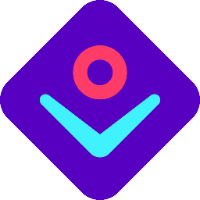Course Libraries and Publication Requirements Overview
atingi categorizes courses into three distinct content libraries, each with its own mandatory publishing standards:
Public Library
Open-Link Library
Non-Public Library
Each library serves different types of learning offers and enrolment methods, and requires specific compliance in course design, technical setup, licensing, and branding. Detailed requirements for each library are outlined below.
Quality Assurance Process
After designing the course with atingi’s guidelines on accessibility and technical configuration, the next step is preparing your course for publication on the atingi platform. This process involves adhering to strict quality assurance (QA) standards and meeting mandatory publication requirements for the selected content library.
atingi provides a comprehensive Platform Quality Assurance document to guide you through the proper Moodle configurations for your chosen course activities and resources. Before submitting your course for publication, you must complete this QA checklist by ticking all required items to confirm implementation of the standards specific to your target library.
Once you submit the completed form to help@atingi.org, the atingi team will then test the course and provide feedback on necessary adjustments. Only after your course successfully passes the QA process and fulfills all requirements will it be published on the platform.
Download the Full QA Document HERE
This checklist is used by the atingi team to identify any open issues in your course. Please download the document and complete it course based on the criteria for the library in which you want to publish. Then send the filled out form to your Customer Success Manager at least 14 days before your envisioned publication date.
Quality Assurance Best Practices
The key -- not exhaustive -- criteria in the QA checklist are briefly summarized below:
Technical Requirements: Moodle Functionalities
Course title with no abbreviations.
Course image must meet approved specifications.
Course description section should not be individually formatted.
A valid Moodle course format must be chosen (tiles or workplace).
Completion settings for activities must function properly to allow learners to complete the course.
Certificate sending must be enabled.
Quiz results must be recorded correctly.
Legal Requirements
Surveys used must comply with GDPR regulations.
The course owner and license must be clearly stated in the course description or legal notes. Click here for a list of Creative Commons licenses.
Full references are included for all external material including AI produced content (i.e. images, videos, tables, graphs, maps)
User Design
Course descriptions should include clear, learner-facing headlines arranged logically (e.g., target audience, course summary, duration, certification, learning outcomes, tutor info, start/end dates).
Courses must have specified sections such as introduction, modules, quizzes, and certificates.
The overall course length and content must be pedagogically sound.
Module content must be described clearly with specific naming conventions for modules and activities.
The introduction tile should contain specific course information.
Interactive activities must be enforced (e.g., no “view” permissions for quizzes).
Passing a quiz should be mandatory to receive a certificate.
Accessibility
Shorter eLearning courses are more engaging, effective, and accessible—ensuring better outcomes for learners.
Courses should ideally be under 4 hours to limit cognitive overload, maintain engagement, and boost learning effectiveness.
Modules should be chunked into segments of about 25 minutes each.
Videos should be of appropriate length and accompanied by transcripts and subtitles.
Reporting
All relevant information field are completed in the SETTINGS tab of your course (this facilitates portfolio management and internal reporting)
By applying atingi’s QA framework and respecting the tailored publication standards, course developers can deliver high-quality, accessible, and legally compliant learning experiences that truly resonate with learners. If you require assistance navigating QA or preparing your course for launch, please contact the atingi support team.
